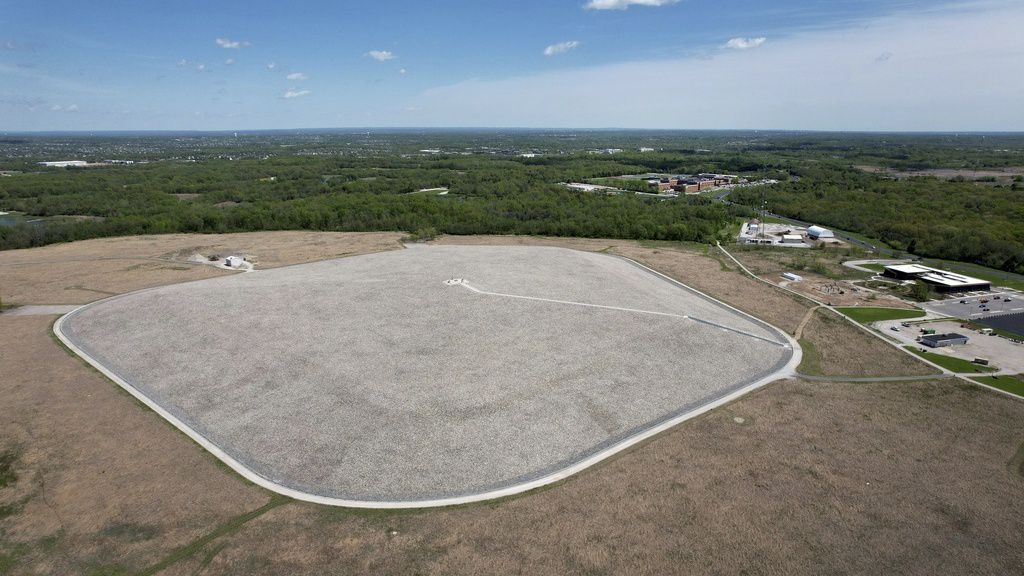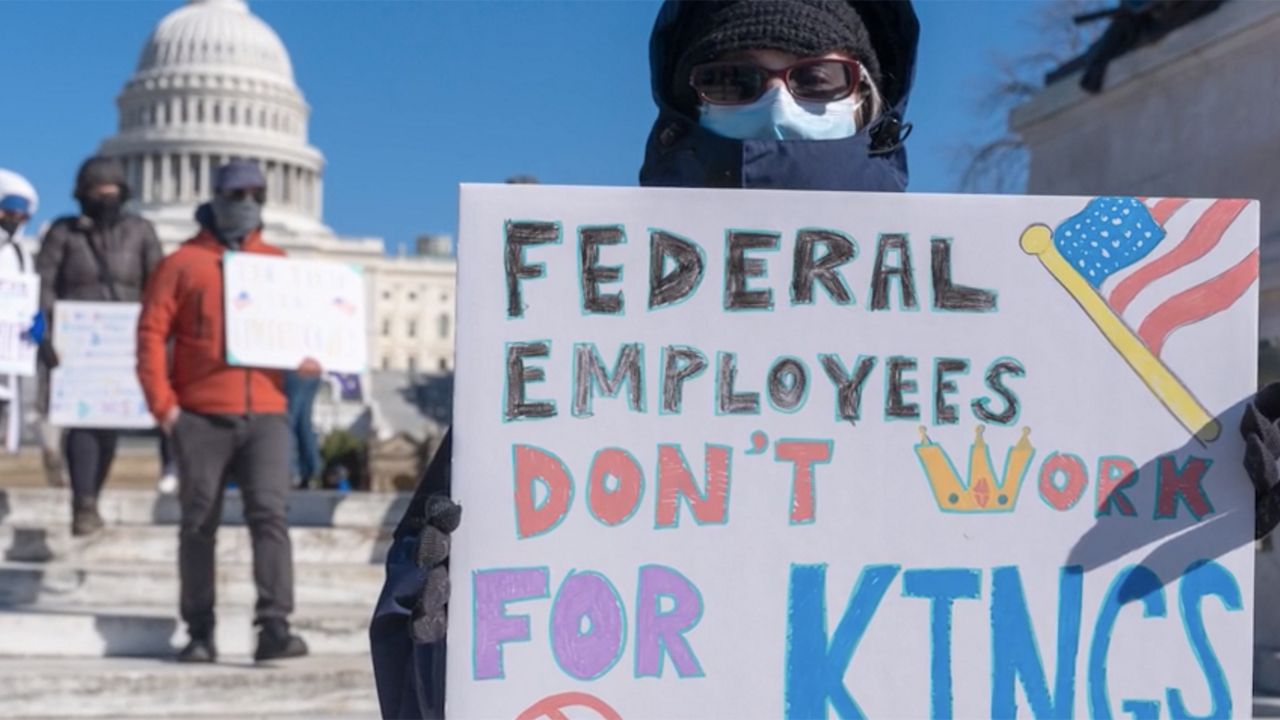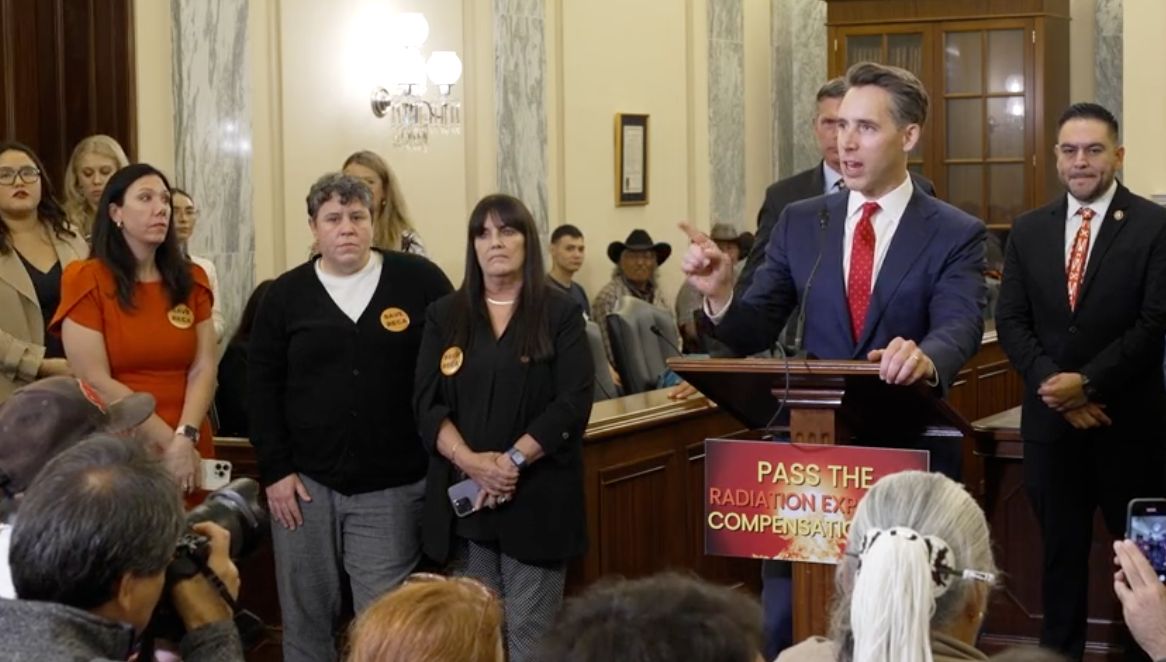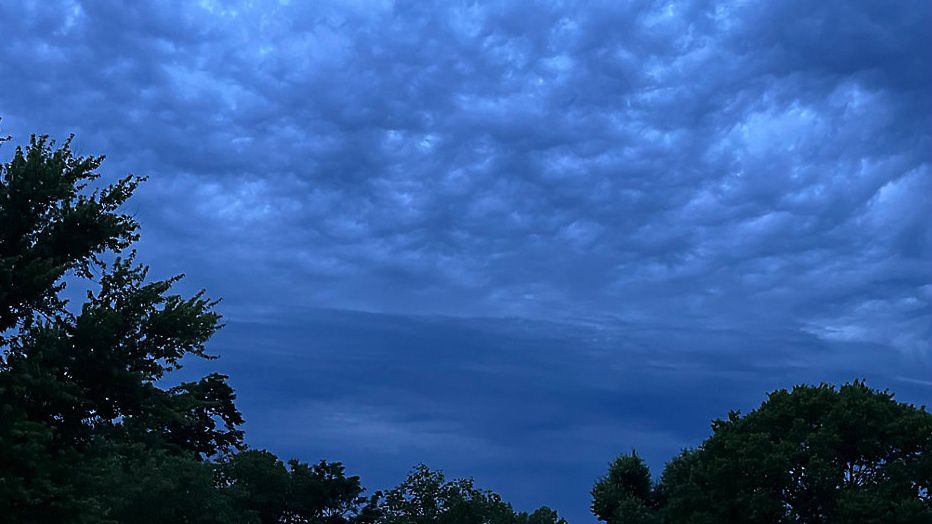WELDON SPRING, Mo.—Among the thousands of pages of documents reviewed by media organizations that this week reported on decades of indifference to the risks of materials used in the development of nuclear weapons during and after World War II in the St. Louis region, is communication between the Department of Defense and the former Atomic Energy Commission, discussing where to put a nuclear weapons processing plant.
The plant ended up in St. Charles County, yards away from what today is Francis Howell High School in Weldon Spring.
“They did that because they thought our enemies would never think we’d put a processing plant next to children. They thought we’d never endanger the lives of our children to build a weapon,” said Missouri State Rep. Doug Clemens, D-St. Ann. “They were wrong. We did it. And we live with the consequences today.”
Now, that plant property is the Weldon Spring Interpretive Site, a Department of Energy installation that serves as a disposal cell for contamination and a monument to the history connected to it.
Thursday at the site, state and federal lawmakers joined members of JustMomsSTL, activists who have campaigned for years about the impact of nuclear contamination in the region, to press for further reckoning with the nation’s nuclear legacy.
Many of those in attendance shared their own family stories of cancer and other illnesses that they blame on the exposure to radioactive contamination in Coldwater Creek and elsewhere.
One day after reporting by a coalition of news organizations reviewed documents that found repeated instances where companies, contractors or the government could have addressed significant problems with contamination but didn’t, U.S. Sen. Josh Hawley, R-Mo., renewed a call made Wednesday for the federal government to pay for St. Louis area medical bills of those impacted by radiation.
He also invited U.S. Energy Secretary Jennifer Granholm and President Joe Biden to visit the region.
.@HawleyMO issues invitation to @SecGranholm and @POTUS @JoeBiden to visit St. Louis area locations impacted by contamination from Manhattan Project era nuclear weapons development. pic.twitter.com/dwSKIGQ90j
— Gregg Palermo (@GreggPalermo) July 13, 2023
Asked to comment specifically on the invitation, and the disclosures revealed in the new round of reporting, an Energy Department spokesperson did not respond directly.
"The department "does not underestimate the impact that nuclear research and the production of nuclear weapons had on communities, and the Department proudly works alongside partners at the federal, state and local levels, including in Missouri, to protect the health and safety of community residents, and protection of the environment," said Deputy Press Secretary Samah Shaiq.
A bill sponsored by Hawley related to testing all Hazelwood School district properties for potential radioactive waste and the potential cleanup at Jana Elementary School has passed the Senate, something Hawley called a miracle. It, along with a companion bill in the House sponsored by U.S. Rep. Cori Bush, has not passed the House.
In a polarized climate in Washington with different political parties holding narrow control of each chamber, passage of legislation for the medical costs could be considered another miracle.
“When you see the reality of this, when you see the facts, I don’t know how you can look these facts in the eye, and look these folks in the eye, and say we shouldn’t be taking action here,” Hawley said.
Dawn Chapman, the North St. Louis County mother who has spearheaded much of the activism geared toward getting answers about contamination and who obtained the documents which were the basis for the latest round of reporting, has called on Missouri Attorney General Andrew Bailey to sue the Department of Energy. Chapman said she handed over the documents to Bailey’s office in May but hasn’t heard from him since
“My office assigned an attorney to investigate this matter when we received documents in May. We will convey our findings to the appropriate parties, and will do everything in our power to hold the federal government accountable,” Bailey said in a statement to Spectrum News. We stand ready to assist Senator Hawley and other advocates to protect the people of St. Louis.”
What’s next
In a greater St. Louis region which has been historically fragmented geographically and politically, Chapman sees a need to come together. This isn’t just about Coldwater Creek, or Weldon Spring or the Westlake Landfill by themselves.
“We’re going to unify the sites…this site out here and what’s happened out here doesn’t get talked about enough….we are all part of this radioactive family and a lot of times you hear Westlake landfill or Coldwater Creek, many times you don’t hear Weldon and that’s going to change. The residents out here have been every bit as impacted, if not more, than sometimes in St. Louis.”
“We have a path forward to fix it. To get St. Louis cleaned up and to help these people that have been exposed and to make this right,” Chapman said in calling for a full cleanup of the region in five years. The Army Corps of Engineers has said a full cleanup of the Coldwater Creek area could take until 2038.
In addition to continuing the push for federal legislative action and potential legal action, expect a series of town hall meetings across the region addressing how the contamination concerns connect to issues like water, health and future development. The first meeting is set for Aug. 2 at the New Melle Community Center at 6:30 p.m.








